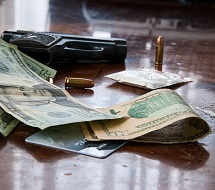Action to Take if Your Child is Dealing Drugs

Do you have any reasons to believe your son or daughter is using drugs? If yes, then you need to come up with possible solutions to help your child from drug abuse. There are various specific signs to tell your child is dealing with drugs. The guide below highlights some of the major signs and the possible solutions to alleviate the problem.
Teens get drugs from their peers
Most parents remain alert on signs indicating the use of drugs by their teens. Some of such popular used drugs include narcotic, marijuana and hallucinogens. Now a more worrying fact shows that your child may be getting drugs from their close peers. Since it’s their first time, it’s rare for adolescents to introduce each other into drug abuse.
As a parent, you always imagine a teen drug dealer as somebody with baggy jeans, dressed in a capped hoodie somewhere in the street corner. Old thinking! These days, you won’t differentiate teen drug dealers from the rest. Once you notice an extreme change of behavior, the chances are your teen is either peddling or using drugs.
Signs your teen is peddling drugs
As a parent, this is the most heart-breaking moment in your life. Mostly, teens do it to sustain their growing desires. Therefore, knowing these indicators may help you provide a timely solution. The earlier you know, the better. Now look out for these red flags on your teen:
Flashy lifestyle
If your teen starts to dress expensively or use the latest gadgets, then chances are he is peddling drugs. Remember you didn’t buy those clothes or gadgets for him and neither can you afford. Now out of the blue, your son is spending extravagantly.
Abnormal use of the phone
It’s common for teens to spend a significant amount of time on the phone. However, you should be worried once your son starts to make a lot of calls or texts. Chances are he is making drug deals.
Changing friends
Youths who sell drugs will go for friends who support the drug dealing business. Watch out especially when a new friend comes visiting at odd hours.
Loss of focus
Once you teen joins drug peddling, high odds are he will lose interests in things he used to enjoy such as sports. Drug peddling is obviously consuming much of his time.
An extreme change in behavior
If your teen exhibits a drastic change of behavior, then there must be a problem. This may include hostility, withdrawing from other family members, too secretive among others.
Solutions
Once you notice these signs, you need to take immediate measures to alleviate the problem before it escalates.
1. Find his reserves
You need to find where he keeps his drugs or money from peddling drugs. This will support your claims when facing him. The drug cache might be somewhere in the pockets, drawers, mattress among other places. Inspect the whole house meticulously for the stash.
2. Act wisely
Do not allow emotions to rule you when you find the unexpected. This may not end well especially if you angrily confront your son. Instead, control yourself and confront your son when calm.
3. Look for ways to engage your son.
When calm, get ready to have a conversation with your child. Go an extra mile and do background research on details of drugs you found. Also, look for the most suitable approach to engage your son.
4. Listen
However much you found him guilty, allow him to explain everything. Let him explain where he gets drugs from and why he does so. There are many reason teenagers engage in drugs so chances are he was coerced. Listening is the first step to finding a solution.
5. Give strong guidelines and limits.
Once your son has explained himself, now let him know the possible consequences of drug dealing. Set rules and if he breaks them, the enforce them even if it means jailing him.
6. Look for professional help
Teens are known to ignore advice from their parents. If you tried your best but got no positive results, then look for professional help. You son may be suffering from a serious problem you can’t handle yourself. Get a therapist or counselor to assist with the problem. Remember this is not the time to panic.





